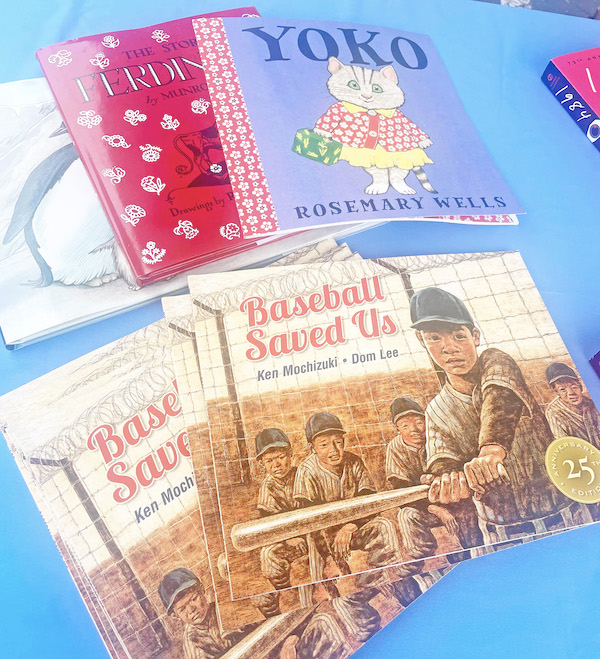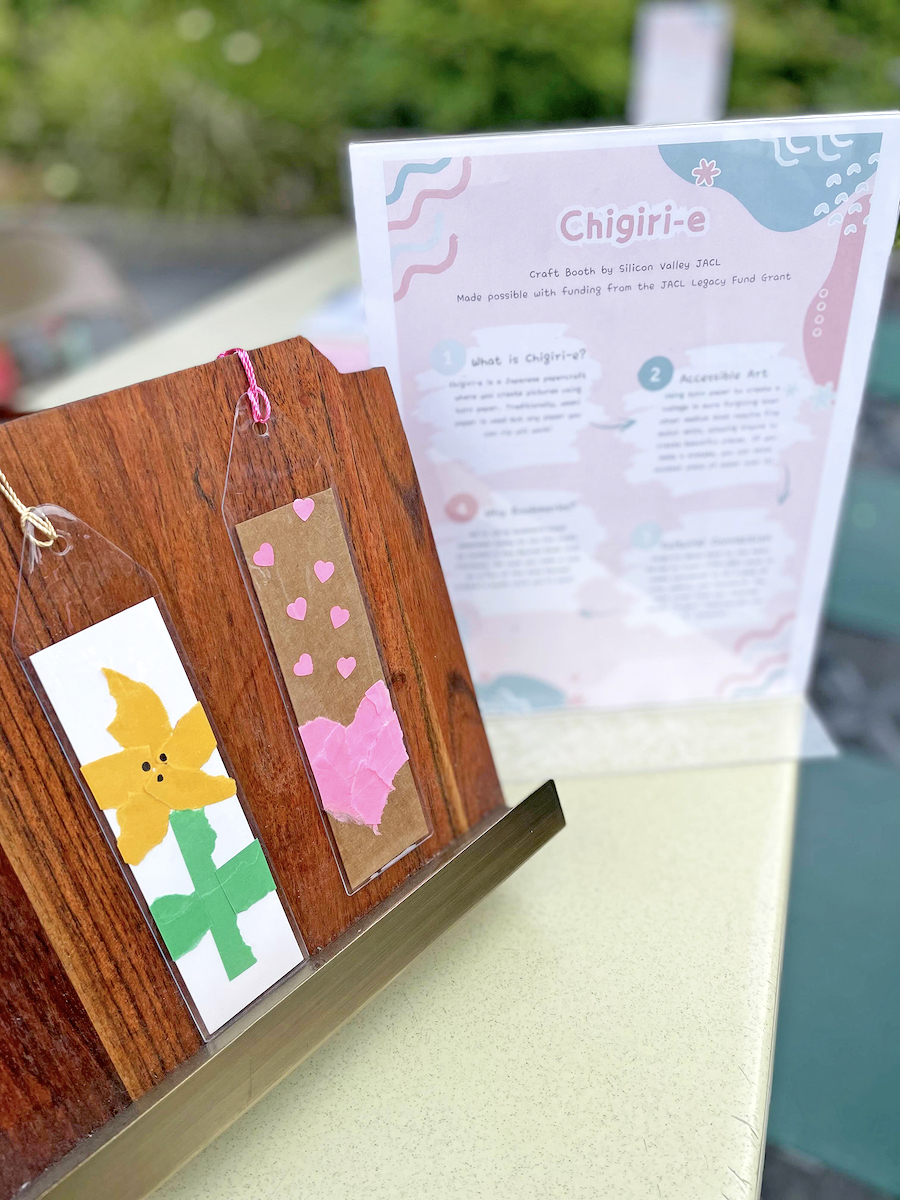The chapter utilizes its $1,000 Legacy Fund
Opportunity Grant to engage community members.
By Silicon Valley JACL
Silicon Valley JACL received the $1,000 Legacy Fund Opportunity Grant and utilized this funding to launch the “SVJACL Banned Books: A Social Justice Initiative” program. This began with a promo launch event at San Jose Japantown’s Nikkei Matsuri Festival on April 27, followed by the first meeting of the Banned Book Club on June 8.

Banned book collection (Photos: Courtesy of Silicon Valley JACL Chapter)
The Banned Book Club is an ongoing monthly event series to build community by fostering critical thinking, promoting intellectual freedom, and defending the right to access diverse ideas and narratives.
The promo launch event at Nikkei Matsuri included an interactive chigiri-e (torn paper collage) bookmark craft and a display of several books that have been banned or contested, including our first book club pick, “1984” by George Orwell, plus several children’s books such as “And Tango Makes Three” by Peter Parnell and Justin Richardson and “Baseball Saved Us” by Ken Mochizuki.
An unintentional benefit of displaying the books was that our chapter table acted as a way for parents to read the books to their children on the spot and initiate discussion about why these stories are seen as something to be censored.
Booth volunteers witnessed several multigenerational interactions where families were connecting and sharing lessons such as “some people think different types of families are bad, but we know that all types of families are good,” after reading the story of Tango the baby penguin with two dads; and grandparents sharing that they were part of a baseball team while in the World War II incarceration camps with their grandchildren after seeing “Baseball Saved Us” on the table.
Seeing so many community members express surprise that some of the books on display were banned or challenged in the U.S. truly highlighted how many of us take for granted the fact that we live in areas where diversity and inclusivity is generally a given.
Access to diverse stories where people can see their cultures reflected and relate to the characters, especially in children’s books, is such an instrumental part of forming your sense of self and being proud to stand in your own skin, not to mention that access to stories and characters outside of what you personally experience helps broaden your worldview, which contributes to communities where differences in culture are celebrated and not suppressed.
We heard this phrase several times while tabling, “Why would they ban that book? It’s such a nice story!” And that’s the heart of the matter. Who is banning these books and why?
Reading and sharing banned books is an act of social justice anyone can participate in, anywhere, at any time, and at any reading level from picture book to full-length novel.
In a political climate where diversity and inclusivity are under attack, it is more important than ever to do what we can to ensure access to stories that uplift marginalized voices and challenge the status quo. With our new collection of banned and contested books, Silicon Valley JACL hopes to do exactly that.

Chigiri-e display
For more information about joining the Silicon Valley JACL chapter’s Zoom monthly book club, please email svjaclbooks@gmail.com.



